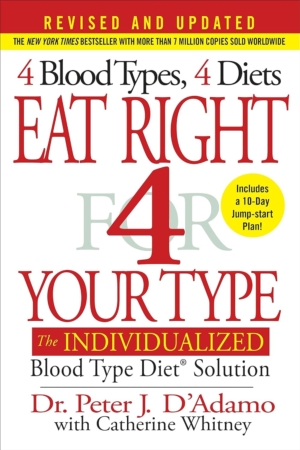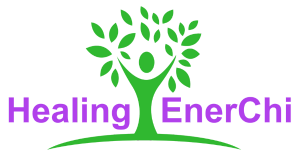Nutrition & Diet Recommendations
Based on my report of findings, I provide tailor a diet, recommended supplements, and nutrition geared towards your most optimal health. During Nutritional Consultations, I also use Applied Kinesiology to muscle test your body and find out the exact nutrition, supplements, and/or herbs it currently needs to find balance and regain homeostasis. This helps your body transition from “stress mode” to “healing mode.”
Eat Organic
As an Acupuncture Physician, Doctor of Oriental Medicine, and holistic healing practitioner, I always recommend my patients eat organic foods. They provide the highest nutrition and the most health benefits to the body. To understand these advantages, it’s crucial to first define what makes a food “organic.”
What Makes a Food Organic?
Organic foods are produced through specific farming and production practices that prioritize animal welfare, environmental sustainability, and the avoidance of synthetic pesticides, fertilizers, and genetically modified organisms (GMOs).

Instead, they rely on natural alternatives, crop rotation, and other methods to manage pests and soil fertility. They emphasize humane treatment of animals, including access to the outdoors, space to move, and natural diets. Antibiotics and synthetic growth hormones are prohibited. And lastly, they aim to minimize environmental impact by promoting soil health, reducing water and energy use, and preserving biodiversity.
Benefits of eating organic foods compared to conventionally grown and processed foods:
- Reduced Exposure to Pesticides and Chemicals
- Higher Nutritional Value
- Lower Antibiotic and Hormone Exposure
- GMO-Free
- Fewer Additives and Preservatives
- Reduced Risk of Antibiotic-Resistant Bacteria
- Potential for Fewer Allergens
- Better Tastes and Flavors
While organic foods may sometimes come with a slightly higher price tag, many individuals find that the long-term health benefits and positive environmental impacts make them a worthwhile investment in their well-being and the well-being of the planet. Making informed choices about the foods we consume can lead to healthier lives and a more sustainable future.
Foods to Eat
The following foods are general recommendations. I highly recommend eating right for your blood type (see below). I firmly believe that diets are not “one-size-fits-all” because as not all foods are right for everyone’s body. During your treatment, we can communicate with your body by muscle testing to learn your individual needs and the exact foods your body needs in order to return to homeostasis and experience optimum health.
- Organic Eggs – 3 preferred ways to eat eggs to receive maximum health benefits:
-
-
- Poach: #1 choice because the water never reaches a temperature greater than 212°.
- Scramble: Use butter and cook eggs over very low heat until they are just setting up.
- Soft Boil: Cook them so the yolk is still runny.
-
- Butter (organic, free-range is better)
- Organic Kefir (made from organic, grass-fed milk)
- Salt (Himalayan Sea Salt)
- Stevia (as a sugar replacement, doesn’t spike blood sugar levels)
- Extra Virgin Olive Oil and Cold-pressed Coconut Oil (ok to use in cooking, but not at high temperatures)
- Fish (Wild-caught is better. Watch for high mercury containing fish)
- Chicken (free-range, organic)
- Beef (rare or medium-rare, organic)
- Organic Veggies (kale, brussels sprouts, cauliflower, etc., and other dark leafy greens)
- Organic Fruit (pesticide-free, berries, apples)
- Nuts (walnuts, almonds, seeds, pumpkin, sunflower – no peanuts)
- Nut Butters (with no extra sugar)
- Rice (brown is preferred over white)
- Millet (gluten-free, has a lower glycemic index compared to some other grains)
- Pure Buckwheat (This is not wheat, and it is gluten-free.)
- Oatmeal (gluten-free is preferred)
- Couscous (made from pearl millet only)
- Quinoa (Contains all nine essential amino acids, making it an excellent plant-based protein source)
- Beans (black, pinto, garbanzo, and kidney beans)
- Coffee, Herbal Tea, Green Tea, Red Wine (only organic coffee)
- Filtered Purified Water (Drink half your body weight on ounces. Avoid soft plastic bottles)
Foods to Avoid
It is best to eat gluten-free options to avoid the inflammation of your digestive system, as well as many other systems and organs in your body. That means:
- No Wheat
- No Barley
- No Rye
I also recommend avoiding the following foods, which can get in the way of achieving optimal health:
- Fried Food (These are high in saturated fat and trans fat, so they promote plaque buildup in arteries.)
- Artificial Sweeteners (aspartame (Equal & NutraSweet), sucralose (Splenda), high- fructose corn syrup (HFC))
- Oils (Omit canola, vegetable, and corn oils.)
- Well-done Meat (rare or medium-rare is ok)
- Deli Meat (and any meat with added nitrates – tell your butcher NO NITRATES)
- Pop/Soda (contains high quantities of sugar)
- GMO Foods (especially NO wheat, corn, soy, canola)
Aside from these general food recommendations, I highly recommend my patients follow the Blood Type Diet (below). Since it is more specific to their individual needs, it better supports their treatments and personal efforts to live healthier and have more energy.
The Blood Type Diet
One dietary regimen I often recommend to my patients looking to feel better is the Blood Type Diet, which is explained by Dr. Peter D’Adamo in his book “Eat Right 4 Your Type,” published in 1996. This diet suggests that your blood type can influence your dietary needs and offers a tailored way of eating to promote health and reduce inflammation.
The Blood Type Diet is a nutritional concept that suggests our blood type, be it A, B, AB, or O, can influence how our bodies react to certain foods. Dr. Peter D’Adamo’s theory is based on the premise that our blood type is inherited and has evolved over thousands of years, affecting our digestive enzymes, immune system, and overall health.
According to the Blood Type Diet, individuals with different blood types should eat foods that align with their blood type’s presumed ancestral diet. Here’s a brief overview of each blood type’s dietary recommendations:

Type O: This is considered the original blood type. Those with Type O blood are recommended to follow a high-protein, low-carbohydrate diet, reminiscent of a hunter-gatherer diet. It includes lean meats, fish, and plenty of vegetables while avoiding grains and dairy.
Type A: People with Type A blood are advised to consume a primarily vegetarian diet. It includes fruits, vegetables, legumes, and grains while avoiding dairy and meat.
Type B: Individuals with Type B blood are encouraged to have a balanced diet with a variety of foods. This includes meat (except for chicken and pork), dairy, fruits, and vegetables, while avoiding wheat, corn, and lentils.
Type AB: This blood type is considered a combination of Type A and Type B. People with Type AB blood are encouraged to consume a diet that combines elements of both, including seafood, dairy, and a variety of vegetables.
Benefits of an Anti-Inflammatory Blood Type Diet
With this basic understanding of the Blood Type Diet, we’ll explore how it can serve as a foundation for an anti-inflammatory diet and the potential benefits it offers:
- Reduced Inflammation: By following a diet that aligns with your blood type’s genetic predisposition, you can potentially reduce inflammation in your body. For example, Type O individuals may experience reduced inflammation by avoiding grains, which are thought to be less compatible with their digestive systems.
- Improved Digestion: The Blood Type Diet emphasizes foods that are theoretically easier for your body to digest based on your blood type. This can lead to improved gut health and better absorption of nutrients.
- Enhanced Energy Levels: When you eat foods that are well-suited to your blood type, you may experience increased energy levels and improved overall vitality.
- Weight Management: Some individuals find it easier to manage their weight on the Blood Type Diet, as it encourages a personalized approach to nutrition that may help with appetite control.
- Better Immune Function: By consuming foods that are compatible with your blood type, you can support your immune system, potentially reducing susceptibility to infections and illnesses.
As a foundation for an anti-inflammatory diet, the Blood Type Diet offers a personalized approach to nutrition that may reduce inflammation, improve digestion, boost energy levels, and provide other health benefits.
Dr. Peter D'Adamo's Book:
Eat Right 4 Your Type: This NY Times bestseller is a revolutionary nutrition guide that explains when you eat right for your type, your body responds the way nature intended.
Understanding Weight Issues

Weight issues can be a sign that the body, mind or spirit are out of balance. If the body can get back to homeostasis, we will naturally lose weight. Therefore, weight issues are simply a sign of not being in homeostasis.
I help to clear the “kinked hoses” or the blocked energy pathways – emotional stressors, chemical stressors (toxins, heavy metals, chemicals, pesticides, xenoestrogens, fertilizers, fluoride, etc.) and physical stressors (energy blockages from scars, stitches surgeries, etc.) – that disrupt the homeostasis of your body.
To help with the diagnosis of your ailments, I use a Symptom Questionnaire to get to the root cause of the problem. Additionally, muscle testing is used to take the guess work out of what supplements, herbs, homeopathic remedies, and treatment modalities to use for you to reach optimum balance and homeostasis.
Book Your Initial Consultation Today!
Ready for your first step toward relief? Schedule your Initial Consultation Appointment online right now by clicking the button below.


